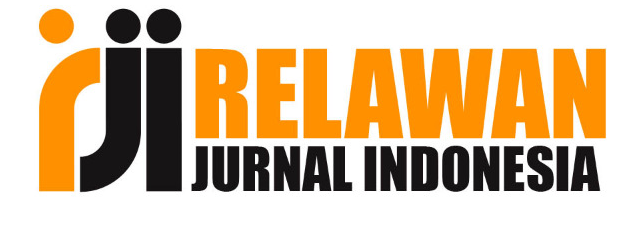THE IMPACT OF ISLAMIC WORK ETHICS, ATTITUDE, AND HEDONIC VALUES ON THE INTENTION TO ESTABLISH SUSTAINABLE ENTREPRENEURSHIP AMONG MUSLIM STUDENTS IN JAVA
DOI:
https://doi.org/10.32939/dhb.v5i1.3503Keywords:
Islamic Ethics Work, Hedonic Values, Attitude, Sustainable EntrepreneurshipAbstract
Purpose: This research examines Islamic Ethics Work, Hedonic Values, and Attitudes toward the Intention to Establish Sustainable Entrepreneurship.
Design/methodology/approach: The research method used is quantitative with a conclusive research design. The primary data used is obtained through a questionnaire distributed on the internet, with the criteria of Muslim students. A total of 210 respondents were gathered. This study employs the SEM-PLS data analysis model.
Findings: The results show that Islamic Ethics Work has a positive direct influence on Attitude, while Hedonic Values do not directly impact Attitude. Furthermore, the Islamic Ethics Work variable does not directly impact the Intention to Establish Sustainable Entrepreneurship. In contrast, Attitude has a positive influence, and Hedonic Values have a negative influence. Islamic Ethics Work positively influences the Intention to Establish Sustainable Entrepreneurship through Attitude. Meanwhile, Hedonic Values have little impact on the Intention to Establish Sustainable Entrepreneurship through Attitude.
Research implications: The results of this study can have implications for developing entrepreneurship courses in higher education by incorporating Islamic Ethics Work to provide opportunities for students to adopt a sustainable entrepreneurship approach and reduce hedonism.
Downloads
References
Abdullahi, A. I., & Suleiman, M. S. (2015). Impact of Religion on Entrepreneurial Intention of University Students in Kano State , Nigeria. International Conference on Empowering Islamic Civilization in the 21st Century, September, 363–375.
Ajzen, I. (1991). The theory of planned behavior. Organizational Behavior and Human Decision Processes, 50(2), 179–211. https://doi.org/10.47985/dcidj.475
Ali, A. J. (1992). The Islamic work ethic in Arabia. The Journal of Psychology, 126(5), 507–519.
Ali, A. J., & Al-Owaihan, A. (2008). Islamic work ethic: A critical review. Cross Cultural Management: An International Journal, 5–19. https://doi.org/https://doi.org/10.1108/13527600810848791
Ali, A. J., & Weir, D. (2005). Islamic perspectives on management and organization. Journal of Management, Spirituality & Religion, 2(3), 410–415.
Amofah, K., & Saladrigues, R. (2022). Impact of attitude towards entrepreneurship education and role models on entrepreneurial intention. Journal of Innovation and Entrepreneurship, 11(1). https://doi.org/10.1186/s13731-022-00197-5
Beekun, R. I., & Badawi, J. A. (2005). Balancing ethical responsi bility among multiple organizational stakeholders: The Islamic perspective. Journal of Business Ethics, 60(2), 131–145.
Blok, V., Gremmen, B., & Wesselink, R. (2015). Dealing with the wicked problem of sustainability: The role of individual virtuous competence. Business & Professional Ethics Journal, 297–327.
Cacciotti, G., & Hayton, J. C. (2015). Fear and entrepreneurship: A review and research agenda. International Journal of Management Reviews, 17(2), 165–190.
Celinediora, M. (2020). Analisis Gaya Hidup Hedonisme Terhadap Perilaku Konsumsi (Impulse Buying) Mahasiswa dalam Perspektif Ekonomi Islam [Universitas Islam Negeri Raden Intan Lampung]. In UIN Raden Intan Lampung. https://www.e-ir.info/2018/01/14/securitisation-theory-an-introduction/
Chin, W. W. (1998). The Partial Least Squares Approach to Structural Formula Modeling. Advances in Hospitality and Leisure, 8(2)(January 1998), 5.
Cooper, D. R., & Schindler, P. S. (2017). Metode Penelitian Bisnis (Edisi 12). Salemba Empat.
Dana, L. P. (2009). Religion as an explanatory variable for entrepreneurship. The International Journal of Entrepreneurship and Innovation, 10(2), 359–376. https://doi.org/10.5367/000000009788161280
Dodd, S. ., & Gotsis, G. (2007). The Interrelationships Between Entrepreneurship and Religion. The International Journal of Entrepreneurship and Innovation, 8(2), 93–104.
Fayolle, A., & Liñán, F. (2014). The Future of Research on Entrepreneurial Intentions. Journal of Business Research, 67(5), 663–666.
Ghozali, I. (2014). Structural Equition Modeling Metode Alternatif dengan Partial Least Square (PLS). Badan Penerbit Universitas Diponegoro Semarang.
Ghozali, I., & Latan, H. (2015). Partial least squares: konsep, teknik dan aplikasi menggunakan program smartpls 3.0 untuk penelitian empiris. Badan Penerbit Universitas Diponegoro.
Gibbs, P., Ilkan, M., & Pouloukas, S. (2007). The ethics of marketing in Muslim and Christian communities. Equal Opportunities International, 26(7), 678–692. https://doi.org/https://doi. org/10.1108/02610150710822311
Graafland, J., Mazereeuw, C., & Yahia, A. (2006). Islam and socially responsible business conduct: An empirical study of Dutch entrepreneurs. Business Ethics: A European Review, 15(4).
Gursoy, D., Altinay, L., & Kenebayeva. (2017). Religiosity and entrepreneurship behaviors. International Journal of Hospitality Management, 67, 87–94.
Haffiyan. (2022). Pengusaha RI Baru 3,4 Persen, Butuh 14 Persen untuk Jadi Negara Maju. Ekonomi.Bisnis.Com.
Hailemariam, A. T. (2017). Women entrepreneurs in sub-Saharan Africa.
Hair, J. F., Hult, G. T. M., Ringle, C. M., & Sarstedt, M. (2016). A Primer on Partial Least Squares Structural Equation Modeling (PLS-SEM) (2nd ed.). SAGE Publications.
Hair Jr, J. F., Sarstedt, M., Hopkins, L., & Kuppelwieser, V. G. (2014). Partial least squares structural equation modeling (PLS-SEM): An emerging tool in business research. European Business Review, 26(2), 106–121. https://doi.org/https://doi.org/10.1108/EBR-10-2013-0128
Hall, J. K., Daneke, G. A., & Lenox, M. J. (2010). Sustainable Development and Entrepreneurship: Past Contributions and Future Directions. Journal of Business Venturing, 25(5), 439–448. https://doi.org/https://doi.org/10.1016/j.jbusvent.2010.01.002
Hamzah, S. R., Suandi, T., Krauss, S. E., Hamzah, A., & Tamam, E. (2014). Youth hedonistic behaviour: moderating role of peer attachment on the effect of religiosity and worldview. International Journal of Adolescence and Youth, 19(4), 419–433.
Hansfel, L., & Puspitowati, I. (2020). Pengaruh Attitude, Subjective Norm dan Perceived Behavior Control terhadap Entrepreneurial Intention. Jurnal Manajerial Dan Kewirausahaan, 2(4), 985. https://doi.org/10.24912/jmk.v2i4.9881
Henseler, J., Ringle, C. M., & Sarstedt, M. (2015). A New Criterion for Assessing Discriminant Validity in Variance-based Structural Equation Modeling. Journal of the Academy of Marketing Science, 43(1), 115–135. https://doi.org/10.1007/s11747-014-0403-8
Hooi, H. C., Ahmad, N. H., Amran, A., & Rahman, S. A. (2016). The functional role of entrepreneurial orientation and entrepreneurial bricolage in ensuring sustainable entrepreneurship. Management Research Review, 39(12), 1616–1638.
IPCC. (2014). Summary for policymakers. In: Climate Change 2014: Impacts,Adaptation, and Vulnerability. Part A: Global and Sectoral Aspects. Contribution of Working Group II to the Fifth Assessment Report of the Intergovernmental Panel on Climate Change.
Islam, T., Ahmed, I., Ali, M., Ahmer, Z., & Usman, B. (2020). Understanding despotic leadership through the lens of Islamic work ethics. Journal of Public Affairs. https://doi.org/https://doi. org/10.1002/pa.2521
Josephson, M. (2013). Ethics and business decision making. Business Ethics: Readings and Cases in Corporate Morality, 78–85.
Kamaluddin, N., & Manan, S. K. A. (2010). The conceptual framework of Islamic work ethic. Management & Accounting Review, 9(2), 57–60.
Khan, K., Abbas, M., Gul, A., & Raja, U. (2015). Organizational justice and job outcomes: Moderating role of Islamic work ethic. Journal of Business Ethics2, 126(2), 235–246. https://doi.org/https://doi. org/10.1007/s10551-013-1937-2
Kraus, S., Burtscher, J., Vallaster, C., & Angerer, M. (2018). Sustainable entrepreneurship orientation: A reflection on status-quo research on factors facilitating responsible managerial practices. Sustainability, 10(2), 444.
Krueger, N. F., Reilly, M. D., & Carsrud, A. L. (2000). Competing models of entrepreneurial intentions. Journal of Business Venturing, 15(5–6), 411–432. https://doi.org/https://doi.org/10.1016/S0883-9026(98)00033-0
Kunto, A. . (1999). Kecil bahagia, Muda Foya-foya, Tua Kaya Raya, Mati maunya Masuk Surga. Kanisius.
Malhotra, N. K. (2010). Marketing Research: An Applied Orientation (6th editio). Pearson Education.
Mohammad, J., Quoquab, F., & Omar, R. (2016). Factors affect ing organizational citizenship behavior among Malaysian bank employees: The moderating role of Islamic work ethic. Procedia – Social and Behavioral Sciences, 224, 562–570.
Ng, E. S., & Burke, R. J. (2010). Predictor of business students’ attitudes toward sustainable business practices. Journal of Business Ethics, 95, 603–615.
Nguyen, T. T. (2020). Impact of entrepreneurship environmental support factors to university students’ entrepreneurship self-efficacy. Management Science Letters, 10(6), 1321–1328. https://doi.org/https://doi.org/10.5267/j.msl.2019.11.026
Noer, M. U. (2022). Islamic Work Ethic: The Role of Religious Principles on Working Performance in Higher Education. Borneo International Journal of Islamic Studies (BIJIS), 4(2), 1–20. https://journal.uinsi.ac.id/index.php/bijis/article/view/4788
Pinkse, J., & Groot, K. (2015). Sustainable Entrepreneurship and Corporate Political Activity: Overcoming Market Barriers in the Clean Energy Sector. Entrepreneurship Theory and Practice, 39(3), 633–654. https://doi.org/https://doi/10.1111/etap.12055
Ruskin, J., Seymour, R. G., & Webster, C. M. (2016). Why create value for others? An exploration of social entrepreneurial motives. Journal of Small Business Management, 54(4), 1015–1037.
Ryff, C. D. (2019). Entrepreneurship and eudaimonic well-being: Five venues for new science. Journal of Business Venturing, 34(4), 646–663.
S., B. K. (2019). Islamic Work Ethics in Business Performance and Organizational Commitment as Means of Da’wah: Practices and Impacts on Small-Medium Enterprises (SME) in Selangor. Universiti Sains Islam Malaysia.
Sakinah, L. Y., Kartiko, S., & Nas, S. (2019). The Effect Analysis of Self Attitude and Efficacy on. Journal of Educational Sciences, 3(3), 318–327. file:///C:/Users/User/Downloads/Documents/Bahan Laporan Akhir/The Effect Analysis of Self Attitude and Efficacy.pdf
Sequeira, J. M., Wang, Z., & Peyrefitte, J. (2016). Challenges to new venture creation and paths to venture success: stories from Japanese and Chinese women entrepreneurs. Journal of Business Diversity, 16(1), 42–59.
Shaw, K., & Sørensen, A. (2022). Coming of age: Watching young entrepreneurs become successful. Labour Economics, 77. https://doi.org/https://doi.org/10.1016/j.labeco.2021.102033
Shepherd, D. A., & Patzelt, H. (2011). The New Field of Sustainable Entrepreneurship: Studying Entrepreneurial Action Linking “What is to be Sustained” with “What is to be Developed.” Journal Entrepreneurship Theory and Practice, 35(1), 173–163. https://doi.org/https://doi.org/10.1111/j.1540-6520.2010.00426.x
St-Jean, E., & Labelle, F. (2018). Wanting to change the world, is it too much of a good thing? How sustainable orientation shapes entrepreneurial behavior. International Journal of Entrepreneurial Behavior & Research, 24(6), 1075–1086. https://doi.org/https://doi.org/10.1108/IJEBR-03-2018-0130
Tasci, A. D., & Ko, Y. J. (2016). A fun-scale for understanding the hedonic value of a product: The destination context. Journal of Travel & Tourism Marketing, 33(2), 162–183.
Thelken, H. N., & de Jong, G. (2020). The impact of values and future orientation on intention formation within sustainable entrepreneurship. Journal of Cleaner Production, 266, 122052. https://doi.org/10.1016/j.jclepro.2020.122052
Triyuwono, I. (2000). Organisasi dan Akuntansi Syari’ah. LKIS.
Tunio, M. N., Chaudhry, I. S., Shaikh, S., Jariko, M. A., & Brahmi, M. (2021). Determinants of the sustainable entrepreneurial engagement of youth in developing country—an empirical evidence from pakistan. Sustainability (Switzerland), 13(14). https://doi.org/https://doi.org/10.3390/su13147764
Untara, B. K. E., & Ahnjong, B. (2022). Hedonism Among Students: How Does Education Respond to This Phenomenon? Jurnal Panjar: Pengabdian Bidang Pembelajaran, 4(2), 121–140. https://doi.org/https://doi.org/10.15294/panjar.v4i2.55023
Voramontri, D., & Klieb, L. (2019). Impact of social media on consumer behaviour. International Journal of Information and Decision Sciences, 11(3), 209–233.
Wu, S., & Wu, L. (2008). The impact of higher education on entrepreneurial intentions of university students in China. Journal of Small Business and Enterprise Development, 15(4), 752–774. https://doi.org/10.1108/14626000810917843
Yasir, N., Mahmood, N., Mehmood, H. S., Rashid, O., & Liren, A. (2021). The integrated role of personal values and theory of planned behavior to form a sustainable entrepreneurial intention. Sustainability, 13(16).
Yilmaz, E. (2013). Examination of Entrepreneurship from Humanistic Values Perspective. 3(3), 205–209.
Downloads
Published
How to Cite
Issue
Section
License
Copyright (c) 2024 Fajar Adrian Sutisna, Hafid Durohman, Muhammad Yuka Anugrah

This work is licensed under a Creative Commons Attribution 4.0 International License.













